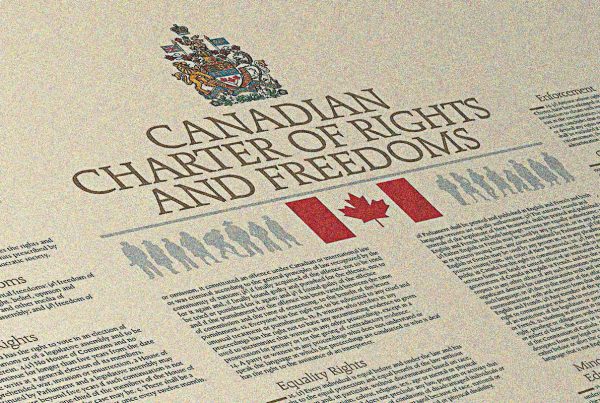The Canadian Charter of Rights and Freedoms protects key rights and freedoms of everyone in Canada. These rights are essential to preserving Canada as a democratic society where we can live our lives freely.
Shockingly, if some of our most important Charter rights were playing cards, the notwithstanding clause would be the Joker that beats them all.
Section 33 of the Charter, commonly known as the “notwithstanding clause”, gives lawmakers the ability to shrug off important fundamental rights and freedoms protected under the Charter.
When invoked, this clause prevents courts from striking down serious Charter violations contained in laws. It is thus nothing short of a Charter override.
The rights subject to the Charter override are far from trivial. Sections 2 and 7 through 15 of the Charter include many of the most basic, essential principles needed for a free and democratic society.
Some of these rights are ever-present in daily life. They allow all people in Canada:
- to freely speak up about issues they care about, regardless of their opinions, aspirations and political beliefs;
- to peacefully protest for their vision of a better world;
- to exercise their religion freely; and
- to collectively bargain for better working conditions.
Other rights covered by the Charter override are there to protect people at their most vulnerable:
- These rights ensure that every individual is treated equally under the law.
- They protect the life, liberty and security of all people, regardless of their backgrounds or circumstances.
- They ensure that people in Canada are not arbitrarily detained, and that they are presumed innocent until proven guilty of an offence.
Since these rights and freedoms are so fundamental to all of us, one might ask why the Charter override even exists. The answer to this question is that it was a political compromise.
In 1981, in the early stages of our Charter’s development, the federal government, Ontario, and New Brunswick supported the entrenchment of a national charter of rights, while the remaining provinces opposed entrenchment in favour of giving lawmakers the last word. Section 33 was seen as a way of solving that deadlock.
Several elected officials directly involved in the 1981 negotiations have since confirmed that the Charter override was never meant to circumvent normal court process, or to be used regularly by any government to override the rule of law:
“The sole purpose of the notwithstanding clause was only for those exceptionally rare circumstances when a province wanted to bring in a specific benefit or program provision for a part of their population — people of a certain age, for example — that might have seemed discriminatory under the Charter.”
– Former Ontario Premier, 1971-1985
“The clause was designed to be invoked by legislatures in exceptional situations, and only as a last resort after careful consideration. It was not designed to be used by governments as a convenience or as a means to circumvent proper process.”
– Canada’s, Saskatchewan’s and Ontario’s Attorney Generals, 1981
The Charter override was intended to be a last resort, not a pre-emptive strike against Charter rights. Alarmingly, recent history shows that some provincial governments have not hesitated to stray from this initial objective. We should all be wary of normalizing the use of this dangerous clause to override important rights and freedoms.














